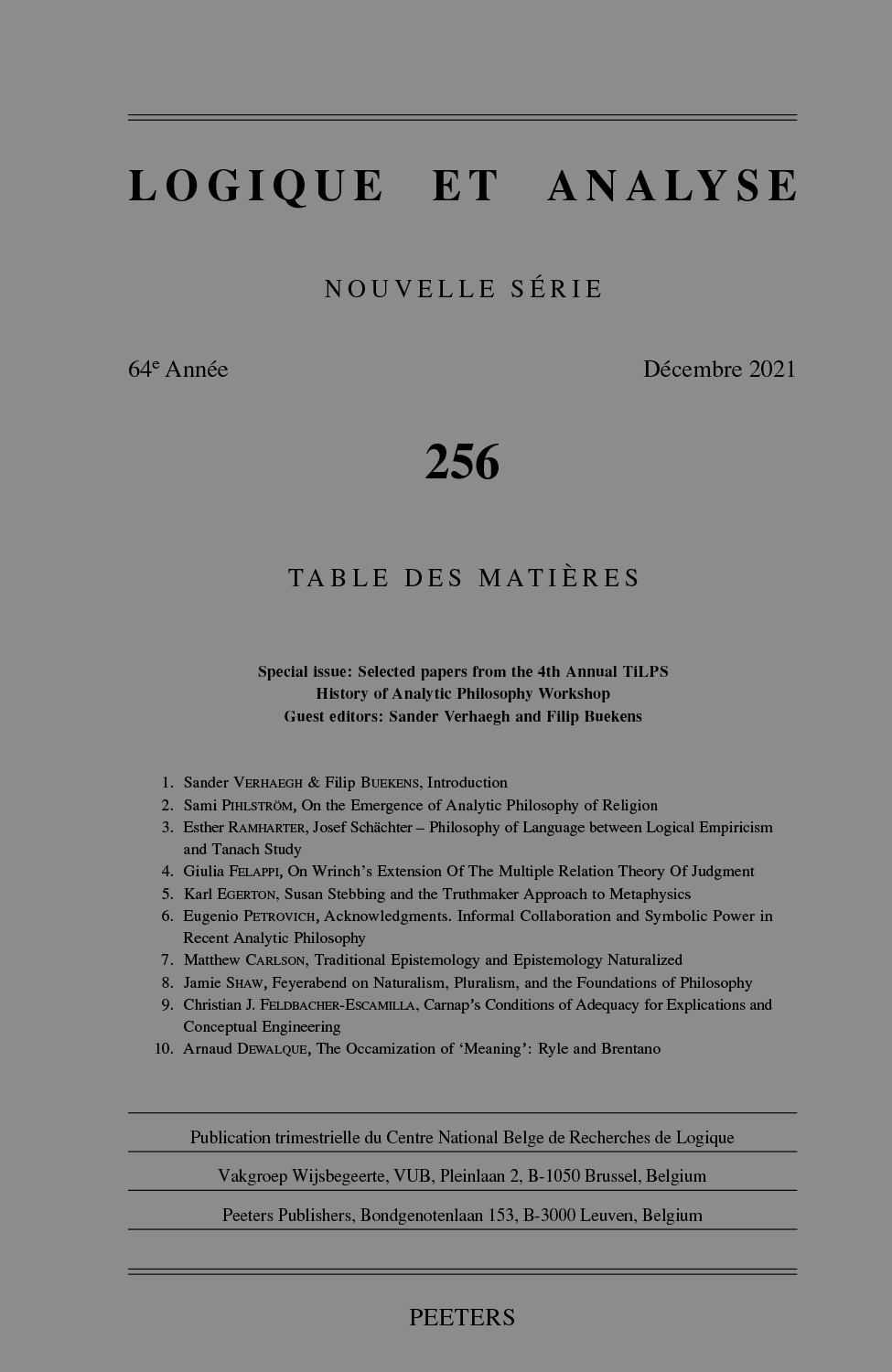 previous article in this issue previous article in this issue | next article in this issue  |

Preview first page |
Document Details : Title: De la démonstration de l'existence de la substance au regard des principes logiques de la métaphysique de l'Éthique Author(s): LEDENT, Piéro Journal: Logique et Analyse Volume: 249 Date: 2020 Pages: 21-37 DOI: 10.2143/LEA.249.0.3288086 Abstract : Dans cet article, nous montrons qu’en recherchant les principes logiques de l’Éthique de Spinoza par l’examen de ses éléments explicites (c’est-à-dire ses définitions, axiomes et postulats), l’on remarquera qu’une erreur logique s’est glissée dans la démonstration de la septième Proposition de la première Partie (E1P7d), qui porte sur l’existence de la substance. Cette erreur tient dans le fait que l’expression cause de soi, définie dans la première Définition de la même Partie (E1D1), y conserve dans un cas son sens courant, alors que dans un autre autre elle y prend celui donné par E1D1. Ce qui, selon ses principes mêmes, constitue une erreur logique, pour ce qu’il utilise en fait E1D1 comme un axiome et non comme une définition. Cette erreur peut toutefois être amendée en transformant E1D1 en un axiome ou en y intervertissant son definiens et son definiendum. Mais comme nous le faisons voir à la fin, chacune de ces corrections impliquerait des conséquences contradictoires entre elles quant à la métaphysique de l’Éthique, notamment en ce qui concerne la question de l’existence de la substance, c’est-à-dire de Dieu. In this paper, we show that by looking for the logical principles of Spinoza’s Ethics by looking into its core constituents (that is to say, its definitions, axioms and postulates) one can realise that a logical mistake has been made in the proof of the seventh Proposition of the first Part (E1P7d), which is about the existence of the substance. This mistake comes from the fact that the word self-caused, defined in the first Definition of the same Part (E1D1), bears in it its regular meaning in one case, and the one given by E1D1 in another one. Which is, by Spinoza’s own rules, a logical mistake, for he uses E1D1 as an axiom, and not as a definition. However, this mistake can be amended either by changing E1D1 into an axiom or by switching its definiens and its definiendum. But we show then, finally, that both of these rectifications would entail opposing results in regard to the metaphysics, especially concerning which relates to the matter of the existence of the substance, namely, of God. |
|


